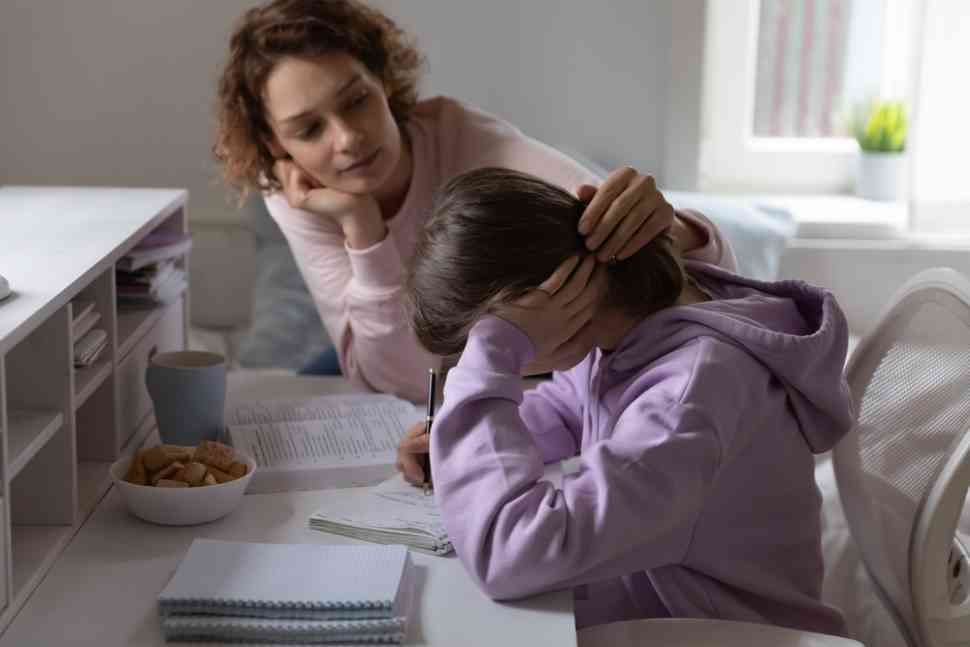The Stress Of School Life And How To Help

Kids get nervous about school. They try to get all their lessons right and bring good grades as well. Every child or teenager experiences stress during some school life, as a regular part of childhood and adolescent development. Many children are worried about how they will be accepted by school society and their grades. When children get stressed, they react in different ways. These depend on their age, their developmental stage, and the cause of the stress they experience.
One category of anxiety that is increasingly encountered among students is performance anxiety, which is a combination of their overall program and school work. This can mean that their schedule is so loaded that it does not allow them to meet all their obligations for the school. On the other hand, they may have difficulty with their homework or have difficulty concentrating. Of great importance are the consequences that this can have on their behavior. They may reach the point of not being able to sleep at night or eat. If any of this happens, then parents need to discuss it with them and their teacher, or even with a specialist, so that a solution can be found.
What can a parent do to help the child with stress?
Anxiety can create obsessive thoughts, compulsions, and perfectionistic tendencies. The stress burdens the body, so children need to be properly fed and play sports. Still, it is important that children rest adequately and sleep the hours that are necessary for them. We recommend to children activities that relax them and help them defuse, whether it is a hobby or some form of exercise.
Remember, if the child completes their tasks perfectly, that is not the end of the world. They are allowed to deliver them with a slight delay. Try to set priorities while planning the time available and the time needed for each task. So they will complete them all at the right time and be calm.
Ensure they are not constantly distracted by the radio, television, the internet, friends, or family. Say no to something that may affect the completion of their work. The parent’s role is to protect the child from distractive sources that may disturb the normal function of the body and brain.
Finally, allow them to take a small break of 5-10 minutes for every 45 minutes of continuous reading. Then they can drink some water, listen to music, go for a little walk, etc. While it is important to set boundaries and give the children space to do their homework, one should not overdo it. The younger the child, the less time it can keep focusing on one thing. Let the kid have a small break every now and then before they are asked to continue the hard work. Identifying anxiety is also important, and here are some of the main symptoms:
-
Emotionally: worry, sadness, anger, fear, agitation, distrust
-
Physical: loss of appetite, stomach pain, headache, dizziness, acne, rapid heartbeat, vomiting, tics, speech impairments.
-
Social: isolation, conflicts with people of the school or family environment.
-
Behavioral: loss of concentration, overeating, anhedonia, nightmares, poor hygiene, insomnia or hypersomnia, truancy, low school performance, aggressive behavior, excessive reactions.
Common mistakes parents make
Observing the plethora of symptoms, it becomes clear that it is very easy to understand that a child is experiencing severe performance anxiety. Regardless, however, of the advice that may be given about what can be done to improve the situation, there are also certain behaviors of parents that may exacerbate the situation.
1st mistake
Many times they identify their child’s acceptance with good school performance. Doing so can lead it to the belief that only if it carries good grades it deserves their love and acceptance.
2nd mistake
At the same time, comparing it with other students who have a better score than their kid can create feelings of insecurity or frustration in adolescents.
3rd mistake
In some cases, successful parents can be very strong role models and set high expectations that the child strives to fulfil.
Have you read?
5 Ways to Build Resourceful Leadership Behaviors by Dr. Deana Murphy.
The dreaded ‘R’ word that won’t go away in 2023 by Ingrid Maynard.
The Power and Limitations of AI in Digital Marketing by Ryan Jenkins.
Rising Market Power of Technology Increases Inequality and Destroys Democracy by Mordecai Kurz.
The Impact of Artificial Intelligence on Medical Training and Careers by Dr. Payam Toobian.
Bring the best of the CEOWORLD magazine's global journalism to audiences in the United States and around the world. - Add CEOWORLD magazine to your Google News feed.
Follow CEOWORLD magazine headlines on: Google News, LinkedIn, Twitter, and Facebook.
Copyright 2025 The CEOWORLD magazine. All rights reserved. This material (and any extract from it) must not be copied, redistributed or placed on any website, without CEOWORLD magazine' prior written consent. For media queries, please contact: info@ceoworld.biz








